- Iterate
- Meet The Team
- Swipe Right: Six Emerging Dating Apps to Watch in 2021
Swipe Right: Six Emerging Dating Apps to Watch in 2021
Table of contents
As dating apps become more popular, entrepreneurs are looking at ways for individuals to make more meaningful connections online. The Org has identified six emerging dating apps that are changing the online dating scene.
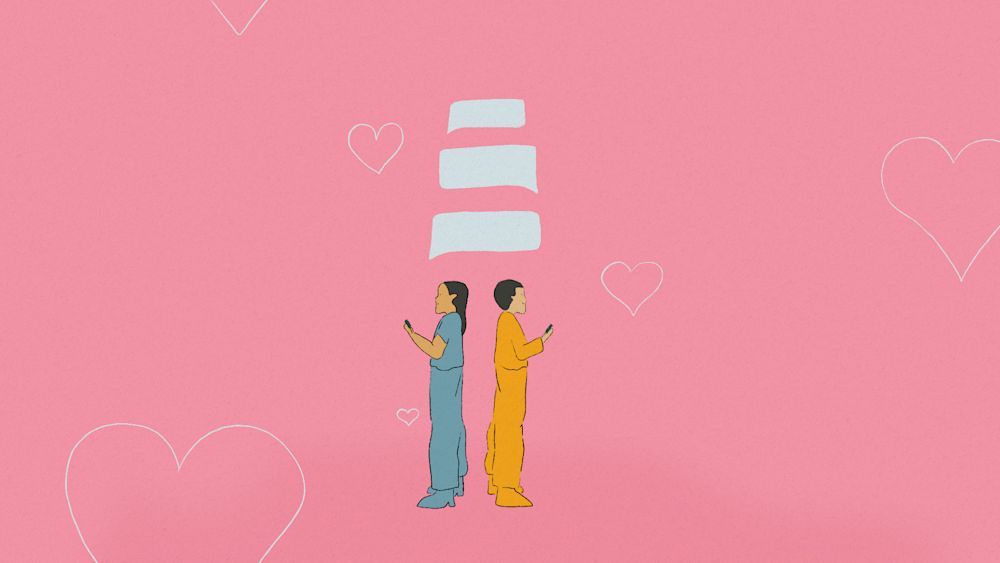
Three in ten adults in the United States have used dating apps in their lifetime, a 2020 Pew Research report shows. This number increases significantly among 18-29 year olds, where almost 50% have dabbled in the world of online dating.
Yet almost 45% of these users have said that apps have left them frustrated. In addition, many have expressed their online experiences have left them pessimistic, and younger women have reportedly had troublesome interactions online.
As dating apps become more popular, entrepreneurs are looking at ways for individuals to make more meaningful connections online. The Org has identified six emerging dating apps that are changing the online dating scene.
Kippo
As an early employee of private, membership-based dating app Raya, David Park spent a lot of time thinking about how to help people find and connect with the 'right' people. After looking through other dating apps in the market at the time, he felt that they were all too similar.
"I wanted to take the concept of online dating back to its first principles," Park told The Org. "So I thought, at a base level, what does it mean to share a human experience on the internet?"
For Park, the answer to this question was gaming. He saw that for decades, people had used gaming platforms as a place to virtually hang out with friends, meet and develop new relationships.
"So the way we think about Kippo is that it's not just a dating app for gamers, but our long-term vision is for it to be a gaming medium through which people can meet each other," Park said.
As the product stands today, users can build a unique profile by filling out a series of templates -- including their horoscopes, Myers Briggs personality type, favorite video games, and many more. Once their profile is complete, they can match and interact with others.
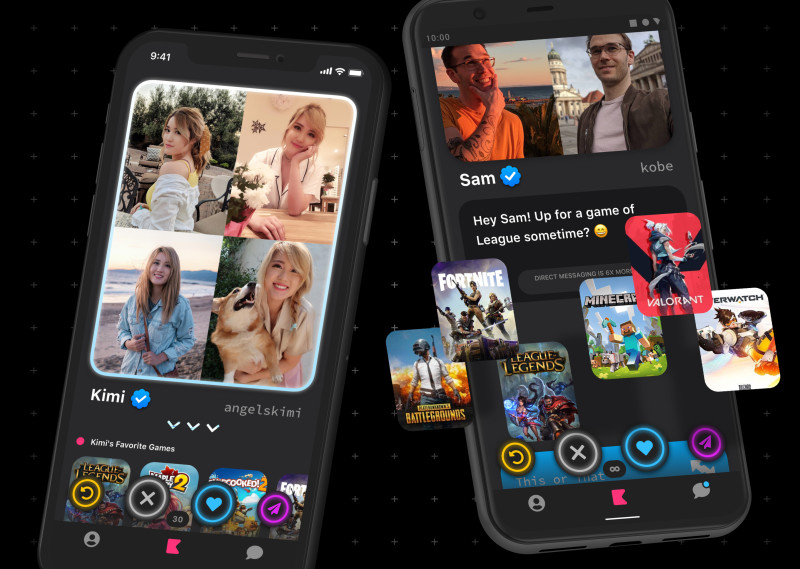
Kippo, which raised $2.5M in its seed round of funding, is currently available in the United States and Canada and the company is looking to launch globally in the near future.
"The greatest thing about Kippo is that we don't have to launch city by city, for gamers who are used to interacting with each other virtually, you just hop online, voice chat and play games together, and eventually if you want to meet, you can meet," Park said. "I think dating apps right now, there's so many things that can go wrong along the way and that meetup never happens, so we connect all those dots through video games."
Snack
Kim Kaplan was the third employee hired at Plenty of Fish, a Canadian online dating service that was later acquired by Match Group. After spending ten years with the company, she decided to leave, becoming an advisor and angel investor for startups. Then one day, as she was scrolling through TikTok, a business idea popped into her mind.
"It was a fateful moment," Kaplan told The Org. "I remember the video as clear as day, it was this woman, it was a Chase Rice Song, and she said: ‘What's your name? What's your sign? What's your age? Where are you from?’ And I thought, ‘she's trying to date, this is a dating profile.’"

Kaplan saw the opportunity to create a video first dating app targeted at Gen Z. This is how Snack came into existence. Snack allows prospective daters to develop and interact with content their matches post on the app.
So far, the interactive dating app has raised a total of $5.5M in pre-seed funding and is currently available to users who live in the United States, Canada, Australia, South America and Japan. To ensure that their product remains relevant to its younger audience, Kaplan has emphasized finding Gen Z investors and advisors.
"I don't know all the nuances that Gen Z is going to be looking for, so I am seeking as much advice and input from them as possible," Kaplan said.
Fourplay
Fourplay was founded by best friends Julie Griggs and Danielle Dietzek. As single women living in New York City at the time, they decided it would be fun to go on double dates together.
"We had so many people show interest," Dietzek said in an interview with The Org. "We were in group chats with so many different people and we were so impressed with the response from the dating community that we thought - maybe this could be an app."
Although the idea of creating a dating app was back of mind for the two healthcare professionals, it wasn't until multiple friends and family members reinforced the idea that they took the leap to build Fourplay.
"It honestly all happened really fast," Dietzek said. "Before we knew it, we had found a developer who was creating an app for us."
The app is currently available to users who live in New York City or within 50 miles of the city. Users create profiles with a friend and match with other duos. So far, Fourplay is averaging several hundred new users each week, with matches being their fastest-growing metric. Though what makes the app particularly unique is that 80% of its users are women.
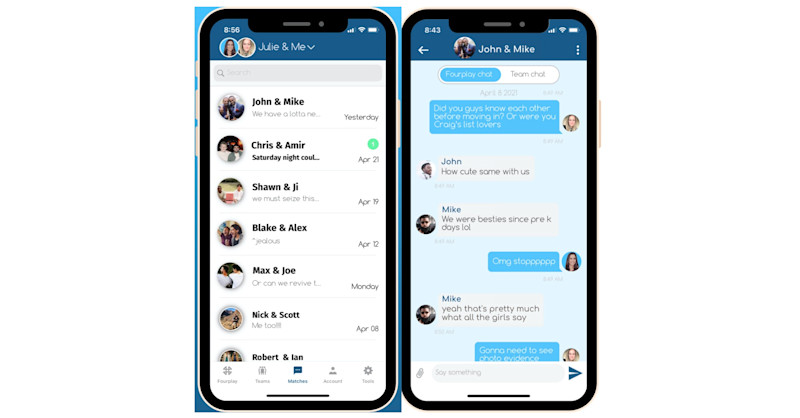
"Online dating can be extremely unsafe for women and it's extremely beneficial for women to have an accountability partner on dates," Griggs told The Org.
"Who better to trust than two women who are best friends, who want to double date for that reason?" Dietzek added.
POM
As an undergraduate student at Cardiff University, Vihan Patel spent a lot of his spare time as a promoter for techno and house music events. But one time, after throwing a hip-hop event, he noticed some striking differences.
"As soon as the first person walked into the club, I realized that it would be a completely different night," Patel told The Org. "He was dressed differently, people danced differently and interacted with each other differently. I looked through the drinks that were ordered during the night, and they were all very different to what people would order on a techno night."
The budding entrepreneur began playing with the idea of bringing people who had similar taste in music together and started working on a pitch deck for a dating app named POM (Power of Music). First, Patel reached out to over 200 investors, eventually gaining the interest of nine, raising a pre-seed total of €220K. Next, Patel focused on hiring a talented tech team and building a solid user base with the money he had raised. During this time, he also brought on a co-founder he describes as analytical and data-driven.
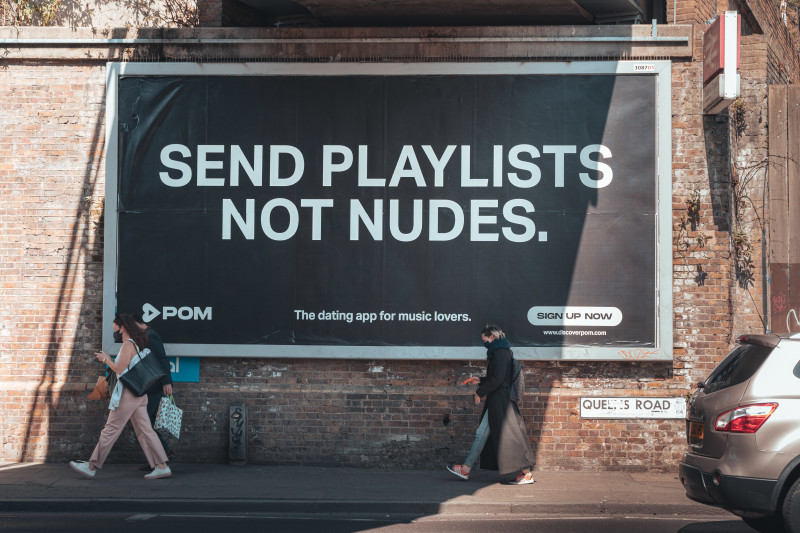
"Since then we've been testing cases, and the app will be launching soon in London," Patel said. "I'm confident it's going to go well. I really want to capture the UK market first. I think especially after the pandemic, the nightlife industry has suffered a lot, and so we've made partnerships with bars, clubs as restaurants. So when someone matches on the apps, they will receive discounts to go see their favourite artists together."
Perhaps what makes POM unique from other dating apps is that it focuses on bringing people who have similar emotional responses to the music they love together. On signing up for the app, users will be asked to connect their Spotify or Apple Music accounts. From there, they will be asked a handful of questions about how their music makes them feel, analyzing their emotional profile. The startup has just finished its seed round of funding, raising a total of €1.2M.
"We're using music as a vehicle for emotion, to try and connect to something more than just how you look and feel," Patel said.
Wingman
Tina Wilson was working as an interior designer in New York City and had little to no luck with her dating life.
"I thought, wouldn't it be great if somebody else wrote your profile, or they were able to talk about who you are as a person," Wilson said in an interview with The Org. "You would be able to cut through so much of the crap that you have to go through in order to get to know someone."
She saw the potential for a platform for singles like herself who didn't love using dating apps but were still interested in meeting a potential partner online. That is how Wingman was born.
Wingman requires friends of users to create their profiles and 'vouch' for them. Then, as the product has evolved over time, a wingman can ask potential partners questions before introducing them to their single friend.
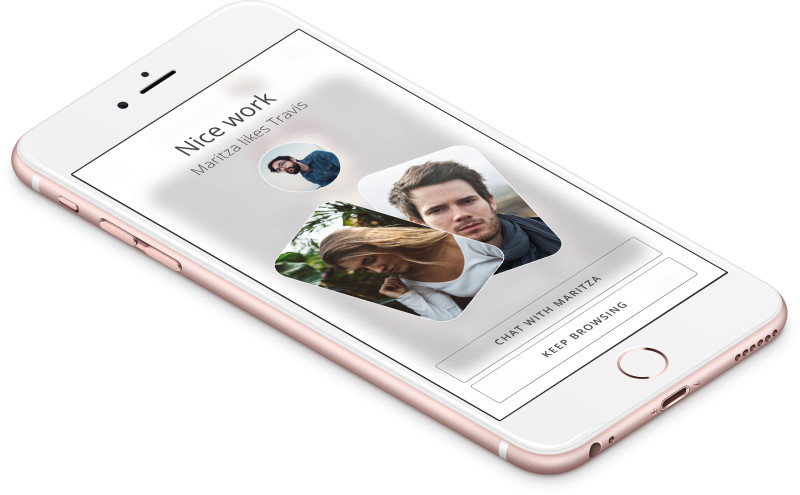
"I think for me, what other people say about you is far more trustworthy than what you say about yourself," Wilson said.
Currently, the Wingman team consists of 14 core members, including a CTO, developers, designers and a marketing professional. The app has raised close to $5M in its seed round of funding and is looking to monetize the product in the next six to 12 months.
Chorus
Emily Smith had been on dating apps for over ten years and was exhausted from all the swiping, small talk and ghosting she had experienced. Despite this, as she got older she noticed that her friends in committed relationships became interested in her dating life on the apps. So she thought, why not create a dating app where friends in relationships could swipe for their single friends?
This idea had floated in her head for many years before she finally decided to put some wireframes together in a pitch deck and obtained some funds to turn it into a reality.
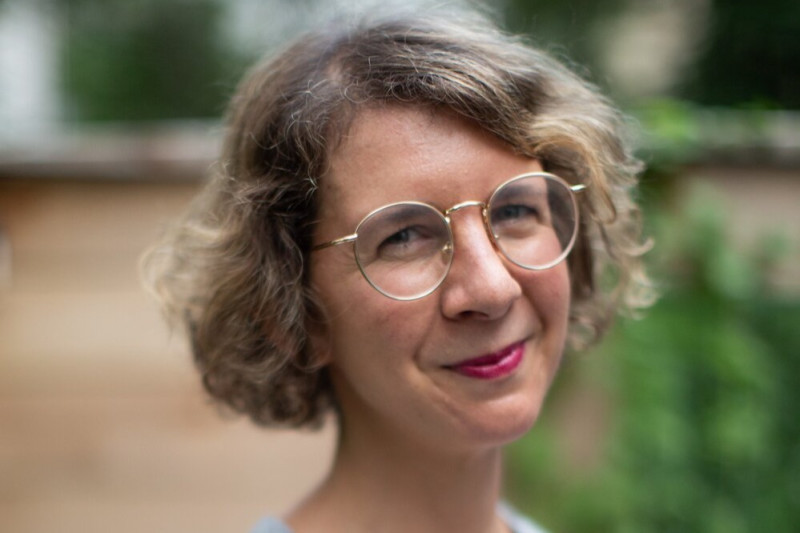
"Dating shouldn't be so depressing, where you're just by yourself, swiping through one-dimensional photos. It has always been so fundamental to have friends weigh in on your dating life," Smith told The Org.
She partnered up with a designer she met at her previous job and began developing the idea. Chorus has since launched in New York City, attracting many users aged between 20 to 40 years old.
Multiple friends can swipe for their single friend on the app, and users can see how many friends have swiped one person on the app. Once they receive a match, they can either choose to accept or decline the person, helping their friends learn their types a little more.
--
The Org is a professional community where transparent companies can show off their team to the world. Join your company here to add yourself to the org chart!
In this article


The ORG helps
you hire great
candidates
Free to use – try today